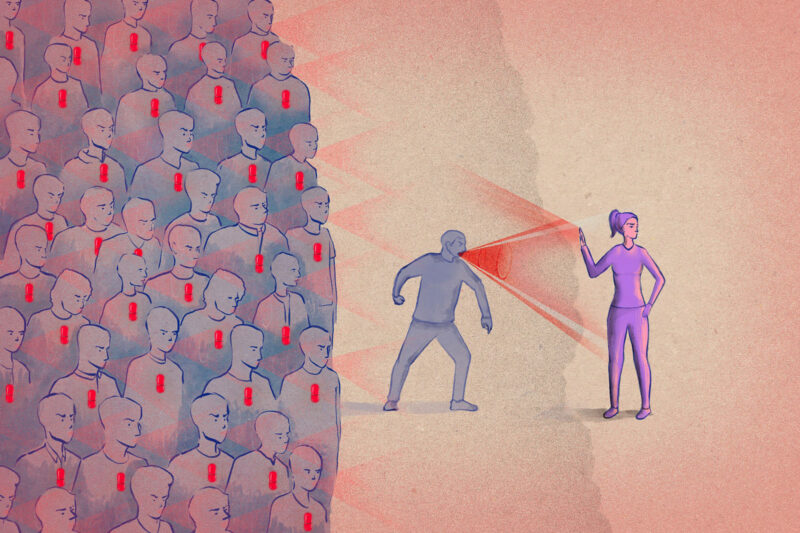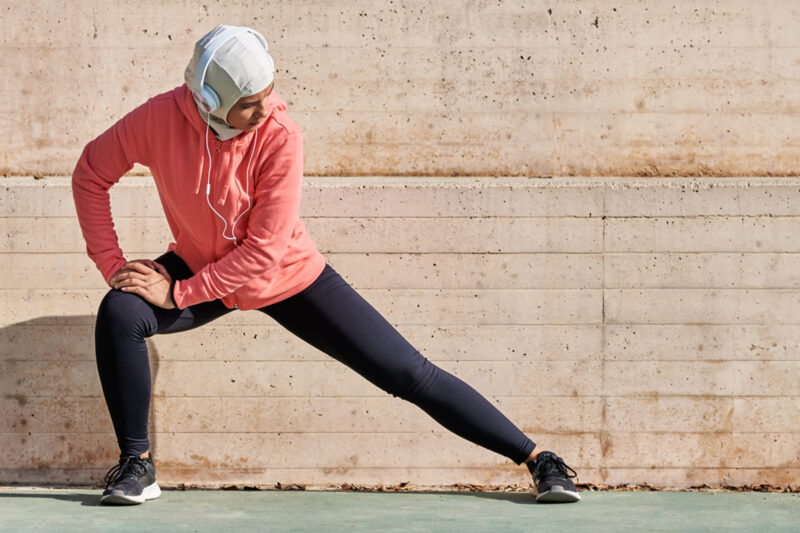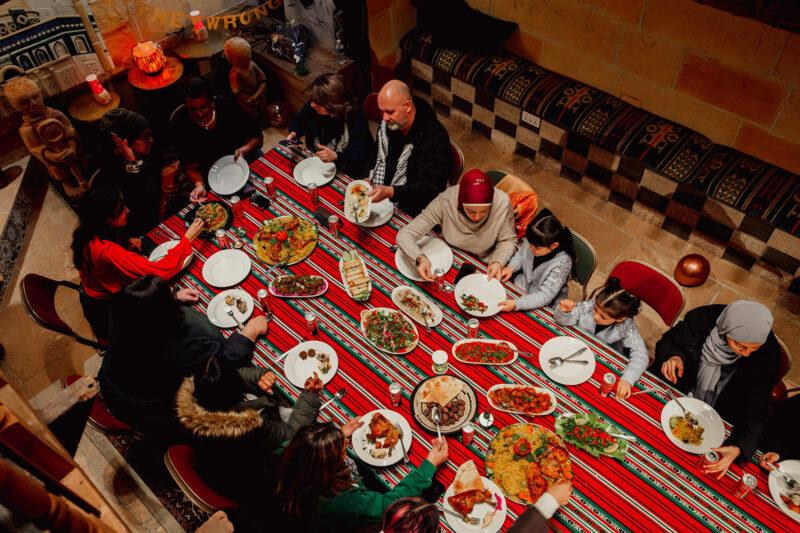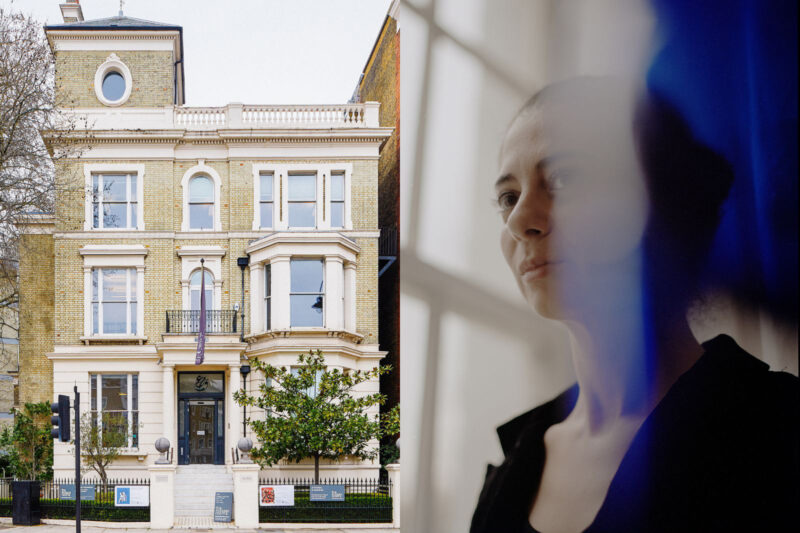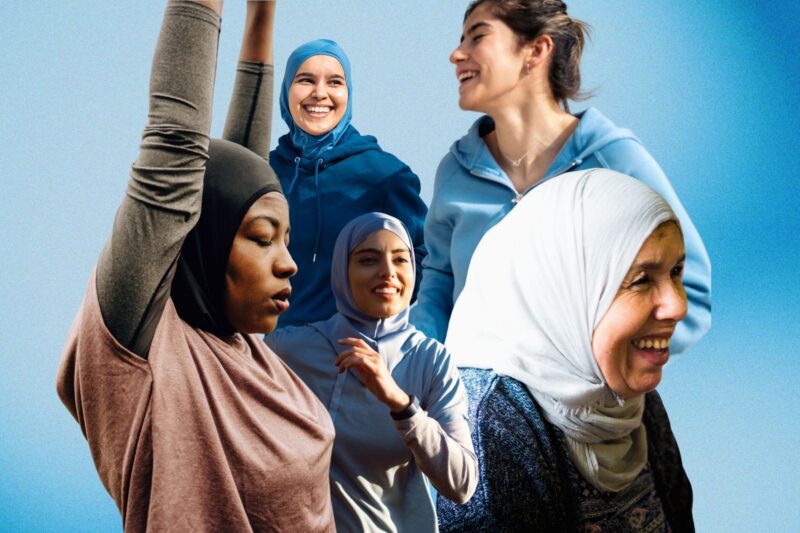Inside the UK’s first Islamic-inspired calisthenics gym
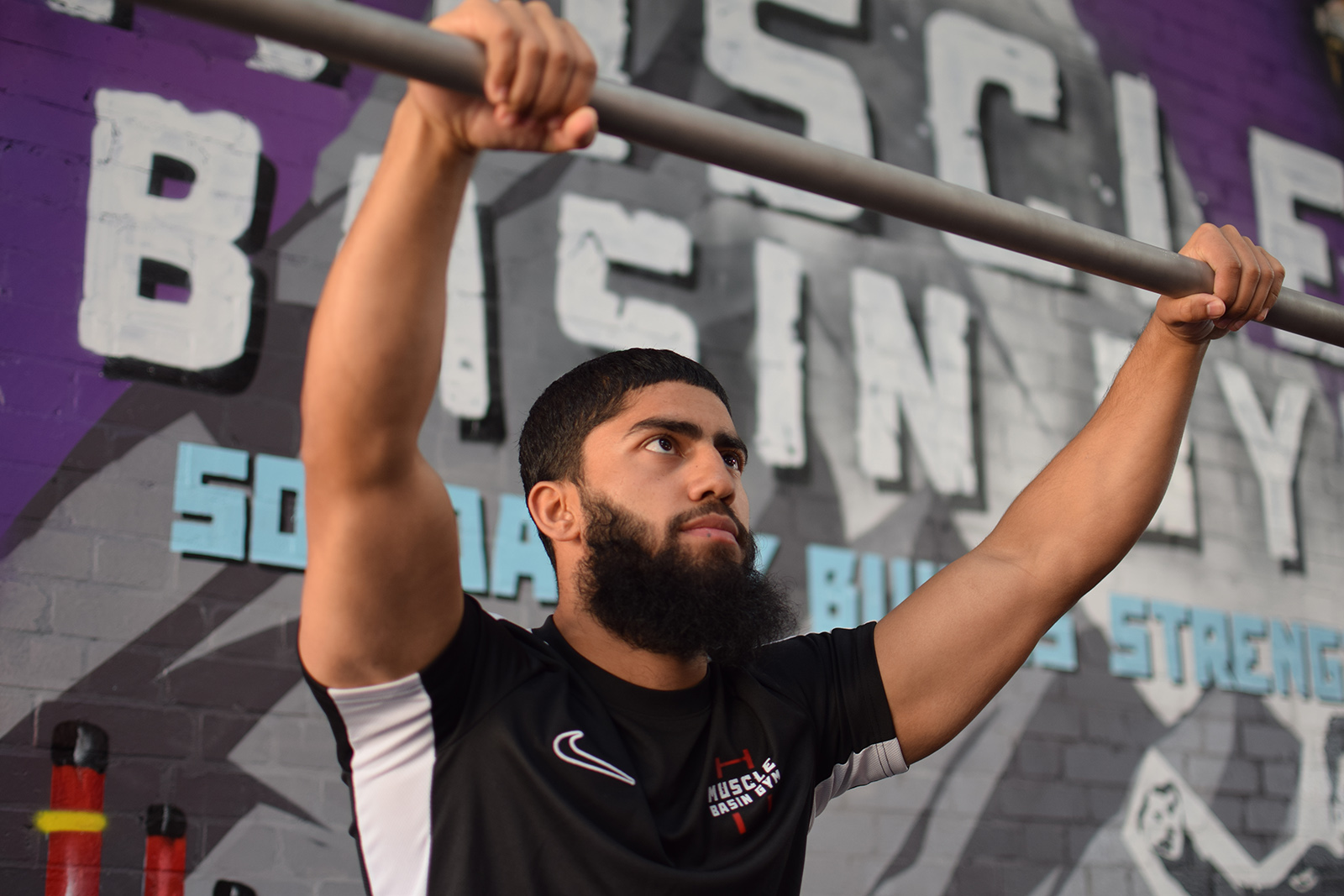
Exercise routines relying on the body’s natural resistance are providing an effective, cheap and accessible alternative to weights and elliptical trainers
“Three more now — come on, akhi,” says Jahedul Islam, applauding each time the young man he’s training completes another push-up. Sweaty but persevering, Asad Ali strains to meet his instructor’s demands, grinding out another rep in the middle of the gym floor.
Ali, 26, is a new member of Muscle Basin Gym, a stripped-down, almost industrial-looking space in east London, equipped with pull-up bars, gymnastic rings and battle ropes. Founded in 2022 by Islam and his childhood friends Fahimul and Nahimul Islam, it is the only fully segregated calisthenics space in the UK and takes a no-music approach to training, centred on Islamic principles.
Calisthenics, an equipment-free exercise regimen that involves using the resistance of practitioners’ bodies rather than traditional weights, is enjoying a surge of online popularity. To date, the hashtag has been attached to more than three million posts on TikTok featuring people using chairs, doors and their own weight to perform at-home resistance workouts.
Islam says membership at Muscle Basin has surged by 50% in the past year, from 180 members in 2024 to 270 now. Standard membership at the gym costs £39 per month, with drop-in classes available at £12.50 for non-members. On Sundays, Muscle Basin hosts a women-only slot from 8am to 10am.
Calisthenics is an accessible and effective way for beginners and fitness enthusiasts to push their physical boundaries. It has also become particularly popular with young people. A study from 2024 found that regular practice has a “highly significant” impact on the muscular endurance, body composition and flexibility of subjects aged from 18 to 21.
In addition to the health benefits, Islam says discovering calisthenics has helped him keep his life on the straight and narrow.
“I was around 19 and it was key to helping me to stay on track and avoid the negative stuff in our area growing up — all of the drugs and alcohol,” he says. “It was also when I started getting closer to God.”
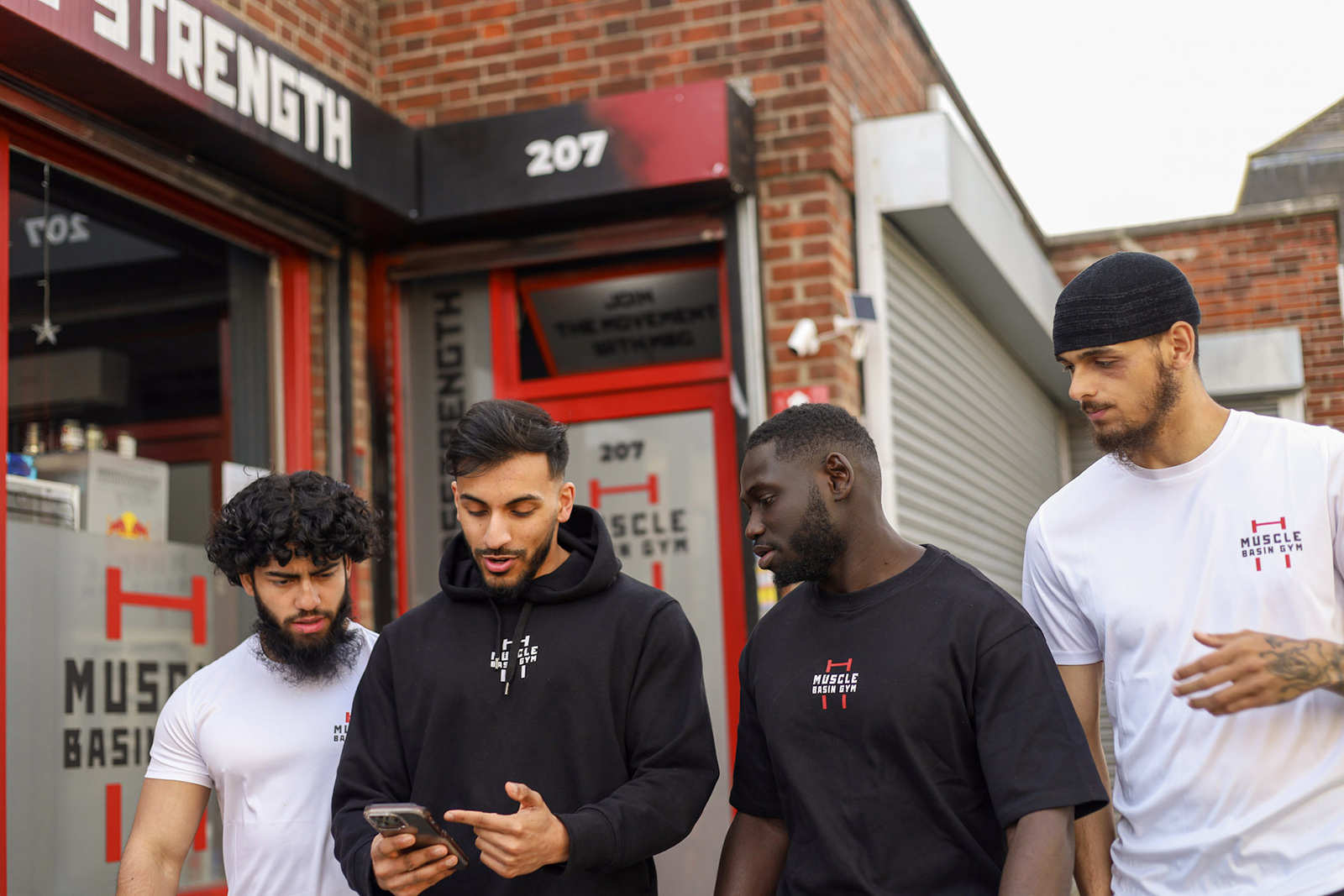
Back then, calisthenics was nowhere near as widespread as it is now. Islam recalls working out in his local park one day and being met with curious stares from passersby.
“I remember when I told people what I was doing — my family and all my uncles — and they were constantly asking, ‘What is that?’ Back then, no one knew about it,” he recalls.
When the Covid-19 pandemic broke out and the country went into the first of a series of lockdowns, Islam saw an opportunity to get his message to a much wider audience. Now, he boasts more than 200,000 followers on Instagram and his videos have racked up more than 50,000 likes on TikTok.
“Everyone was at home then, so I jumped on social media,” he says. “From there, it was all about consistency and by the time the second lockdown came, my videos were going viral.”
Themes of collaboration, discipline and spirituality are ever-present themes on Islam’s Instagram and TikTok accounts. In keeping with those ideals, his biggest reward is knowing that he has helped to improve people’s lives.
“What we see in our community is that people have started it, trained through it and grown from it,” he says. “We work together as a strong team, with no ego or pride. When people come in here, they see the community, they see the vibe and the brotherhood, Muslim or non-Muslim.”
Another important element of Islam’s mission is making calisthenics inclusive of everyone — an approach that is sometimes missing on the social media accounts of many fitness influencers.
“Marketing-wise you’re never going to get the big guys coming on camera, so you always end up seeing the fitter, younger people online,” he says. “It creates this misconception that calisthenics is for people with a gymnast body but we’ve worked hard to tackle that myth.”
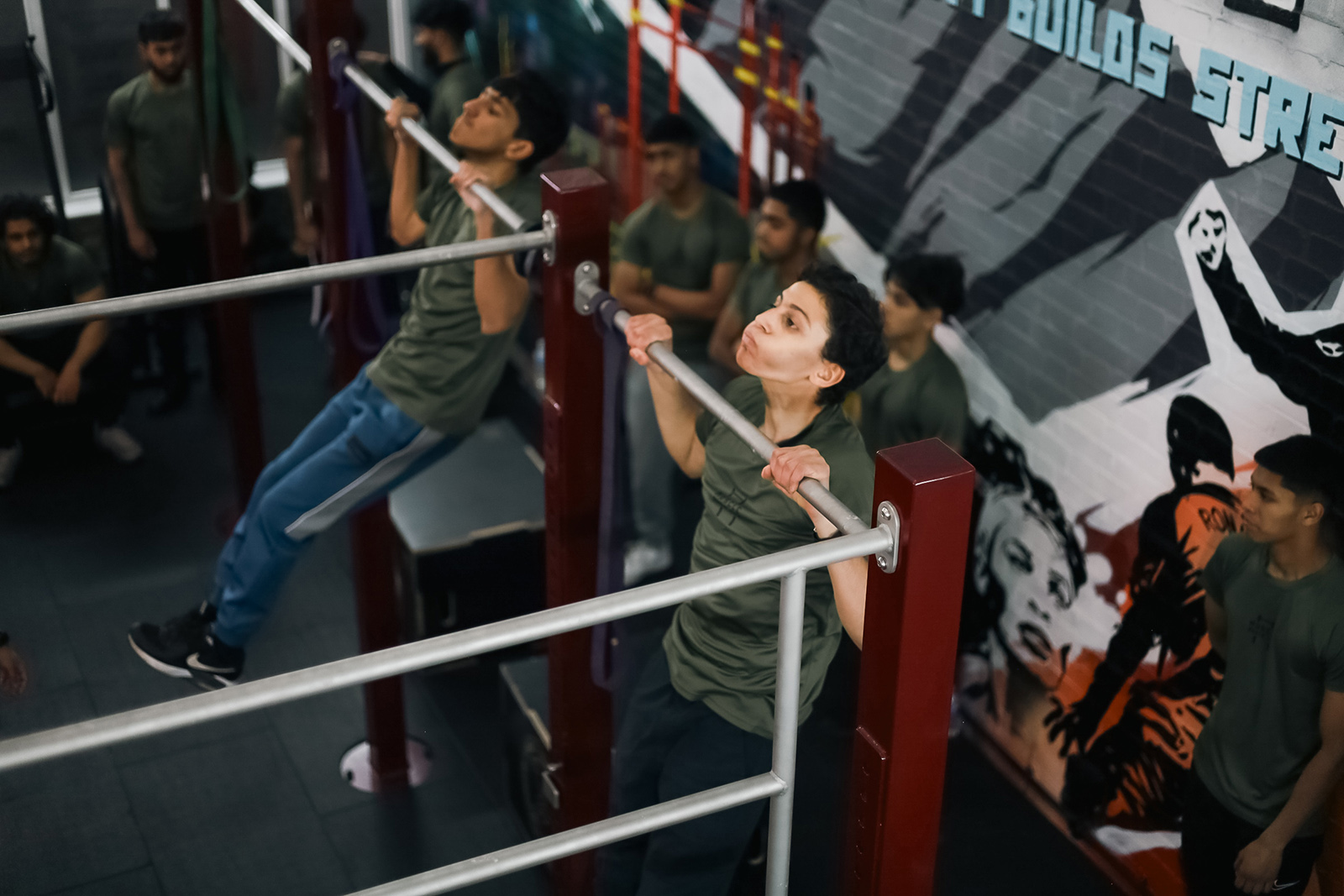
While Islam is clearly proud of Muscle Basin, he is also keen to point out the accessibility of calisthenics. The fact that the discipline relies on the natural resistance of the human body, rather than expensive equipment, means that it offers a cost-effective alternative to pricey gym memberships.
“If you see a piece of scaffolding, you can do a pull-up,” he says. “It’s the sort of thing that’s totally adaptable to your environment.”
As the evening rush begins, more people start to filter into Muscle Basin. Ali’s session has moved on to weighted pull-ups, but there is a sense of meditative calm beneath the intensity of the workout.
Afterwards, Ali explains that a recommendation to diversify his training following a ruptured achilles tendon drew him to calisthenics.
“Coming off the back of that injury, there was also a lot going on for me in my personal life and I was switching up the dynamics of my routine,” he adds. “The gym became one of those changes.
Despite being a regular gym-goer and football enthusiast, the shift to calisthenics proved a humbling one.
“It’s all well and good being able to bench 100kg, but if you can’t pull your body weight, that sort of puts it in perspective,” he says.
Taking up a new form of exercise has also redefined his relationship with his body and what he wants his training to achieve.
“I was thinking to myself, ‘Maybe you’re not as strong as you can be. Maybe you don’t have as much control over your body as you thought you did,’” he says. “Then calisthenics really opened my mind to a whole different way of looking at my body.”
Islam recognises that the foundation of faith and contemplation at Muscle Basin is at odds with much of contemporary fitness culture, but he believes that’s exactly what his clients want.
“We’ve realised there are a lot of people like us in this world,” he says. “That’s why this is doing well. We’re not here to change the world. We’re not here to change gym culture. We’re doing this because we want to give something back.”
 Newsletter
Newsletter






